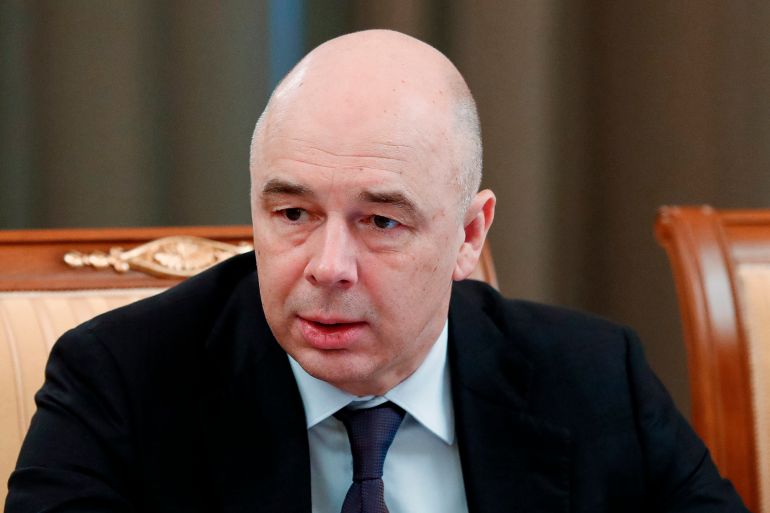Russia urges BRICS nations to integrate payment systems and cards
Finance Minister Anton Siluanov says sanctions imposed after Ukraine invasion destroy foundation of existing system based on US dollar.

The Russian government has urged the BRICS group of emerging economies, which consists of which Brazil, China, India, Russia and South Africa, to extend the use of national currencies for import-export operations and integrate payment systems.
Following its invasion of Ukraine on February 24, Russia has been hit by unprecedented Western sanctions that have cut it off from the global financial system and from nearly half of its gold and foreign exchange reserves, which stood at $606.5bn in early April.
Keep reading
list of 4 itemsTwo Russian journalists arrested over alleged work for Navalny group
Russia and Ukraine target each other’s energy sectors
US to provide Patriot missiles to Ukraine as part of $6bn defence aid
Meanwhile, international payment cards Visa and MasterCard suspended operations in Russia in early March and Russia’s biggest banks have also lost access to the SWIFT global banking messaging system.
Russian Finance Minister Anton Siluanov on Friday told a ministerial meeting with BRICS that the global economic situation had worsened substantially due to the sanctions, a statement from his ministry said on Friday.
The punitive measures also destroy the foundation of the existing international monetary and financial system based on the United States dollar, Siluanov said.
“This pushes us to the need to speed up work in the following areas: the use of national currencies for export-import operations, the integration of payment systems and cards, our own financial messaging system and the creation of an independent BRICS rating agency,” Siluanov said.
Russia set up its own banking messaging system, known as SPFS, as an alternative to SWIFT. Its own card payment system MIR began operating in 2015.
They were part of Moscow’s efforts to develop homegrown financial tools to mirror Western ones, to protect the country in case penalties against Moscow were broadened.
The finance ministry said BRICS ministers have confirmed the importance of cooperation in efforts to stabilise the current economic situation.
On Friday, the Russian central bank cut its key interest rate to 17 percent from 20 percent, in a surprise move before a regular board meeting scheduled for April 29, and said it held open the prospect of further cuts at upcoming meetings.
The cut partially reversed the emergency rate rise that the bank delivered in late February following the invasion.
The move by the central bank came after Siluanov said earlier this week that his ministry was working with the central bank on measures to make the rouble exchange rate more predictable and less volatile.